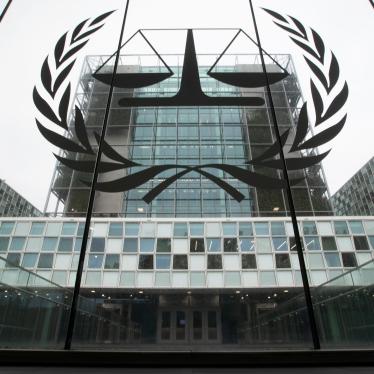On its face, President Donald Trump’s February 9 executive order on preventing violence against law enforcement officers seeks to achieve a worthy goal.
No one objects to taking appropriate steps to support and protect police officers. But the vague language of the order and related policy statements from the Trump administration feel ominous because of what the president hasn’t said—that the federal government also has an important role to play in helping to ensure that police departments are accountable.
The Trump administration’s policy statement on law enforcement claims that: “The dangerous anti-police atmosphere in America is wrong. The Trump Administration will end it.”
Despite some high profile murders of officers last year, though, the overall trend of violence against police has moved steadily downward for the past several decades, and assaults on police dropped over 15 percent between 2004 and 2013, the last year these statistics are available. One very worrying possibility is that the administration will consider the rising calls for police accountability from members of the public and for federal action to monitor police departments with documented records of abuse to be “dangerous” attacks on the officers themselves.
Against this backdrop, the executive order calls for the attorney general to address protection and safety of officers by reviewing existing laws and recommending new ones, “including, if warranted, legislation defining new crimes of violence and establishing new mandatory minimum sentences for existing crimes." Every state has laws to hold accountable anyone who commits a crime against police and local law enforcement officers. Federal laws primarily apply to crimes against federal officers.
Increasing punishment for crimes against police, including mandatory minimum sentences, has a “tough on crime” sound to it, but will it improve officer safety?
Most, if not all, states with capital punishment already impose the death sentence for killing a police officer. Federal law allows execution for killing a federal officer. State and federal laws already allow lengthy sentences for other violent crimes against officers. It’s hard to imagine officer safety increasing simply because the punishments for harming officers get ratcheted up; particularly when they are already severe.
The executive order also directs the attorney general to “evaluate all [Department of Justice] grant funding programs” and recommend changes to those programs and to legislation based on the extent they “support and protect” police. This is extremely broad language.
Does it intend merely to look for ways to think creatively about how some grants might be usefully deployed in new ways to help support and protect police? Or does it mean to insist that all Justice Department grants, regardless of their larger purpose, should have to justify themselves based on whether they “support and protect” police?
There is also the question of what “support” actually means. There are many ways to support police officers—providing proper training, including de-escalation tactics for interactions with people who may be aggressive; empowering other first responders, particularly mental health professionals, to handle situations for which officers are ill-equipped; improving officer working conditions; or improving oversight and discipline to remove abusive officers. Investment in these types of programs are one way to support police.
But again, the vague but seemingly innocuous idea of “support” for police can take on an ominous tone against the backdrop of President Trump’s rhetoric. During the campaign, President Trump suggested that Black Lives Matter bore some responsibility for the Dallas police killings, and said he would have the attorney general “do something” about it. Does the government intend to work hard to find ways to support police, or does it intend to look for ways to reduce the pressure on police to be accountable for abuse?
Protecting the safety of police officers is a good idea. So is working hard to hold police departments accountable. These two goals do not stand in opposition to one another; the federal government should be doing both.









